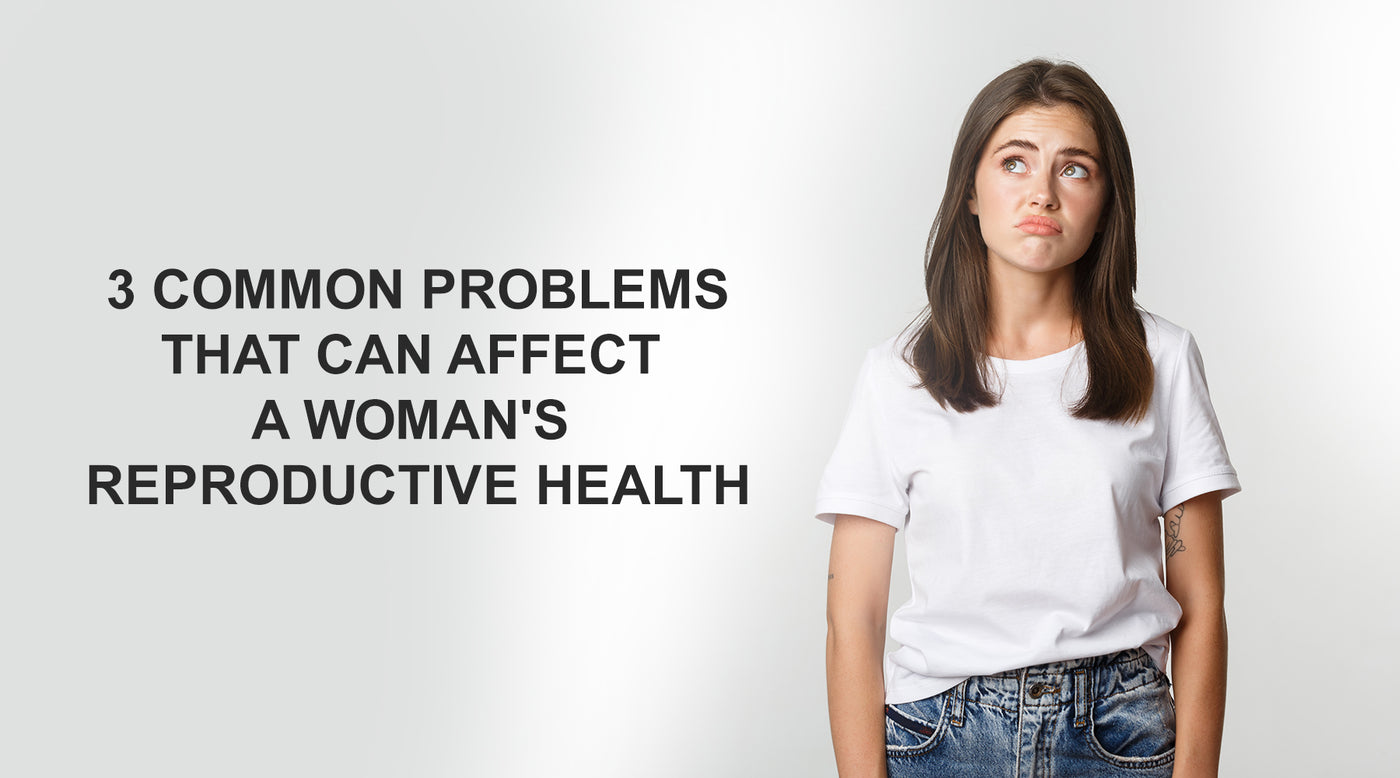3 common problems that can affect a woman's reproductive health

Hi, my name is Indu.
My husband and I were together for ten years before getting married. I was in my early twenties when we met, working an unfulfilling job with a hectic life. We had decided to get married when I had a better job with more stability and better hours. And finally, the time came. We had bought a house, and a year later, we were married. I had just turned 30. After two years of marital bliss, we wanted to start trying for a baby.
I was 32; my husband was a few years older. Like many others, we began trying and tracking my ovulation based on suggestions from my doctor. We tried diligently for three months, but no luck. I started seeing a naturopath, took a variety of additional vitamins. After about seven months, I went to my doctor, who asked me to take some tests. Based on my reports, the doctor informed me that I had PCOS. As a result, I was facing difficulty in conceiving. After hearing this, I was devastated. My doctor referred us to a fertility clinic. I am trying to stay positive and keep hope alive, but inevitably I get the signs that my period is coming, and then it arrives.
Like Indu, many women are facing reproductive problems due to modern lifestyle habits and the environment. Unhealthy diet, lack of exercise, stress, smoking, excessive alcohol, and obesity have the biggest impact on fertility. So, by identifying the underlying cause of the problem, you can seek the right treatment so you can conceive.
Let's understand the three common problems that can affect a woman's reproductive health.
Polycystic Ovary Syndrome (PCOS) or Polycystic Ovary Disease (PCOD) is a lifestyle disorder, and it is common among women of the younger generation. According to the latest statistics, in India, one in every four young women is said to have PCOS or PCOD.
So, what is PCOD or PCOS? It is a disorder that has many aspects with various symptoms. With PCOS, your ovaries produce more male hormones than normal levels. As a result, cysts develop in your ovaries, interfering with your ability to conceive. The symptoms include abnormal facial and skin growth, baldness, acne, weight gain, and absence of menstrual cycle.
Are the genes to be blamed? Not really. The rush to be good at everything has made us forget to eat right, exercise, sleep well, and have a good emotional balance. These lead to metabolic imbalances that cause insulin resistance and increase the chances of diabetes and heart disease.
Endometriosis
It is a common problem for many women. Endometriosis affects your uterus, which is where the baby grows when you are pregnant. So, when you have this condition, the tissue that usually lines your uterus grows somewhere else like the ovaries, behind the uterus, or even on your bladder. The symptoms of endometriosis are extreme pain in your abdomen, pelvic area, or lower back and heavy periods. In some cases, women do not have any symptoms until they realise they are having difficulty conceiving.
Uterine fibroids
Uterine fibroids are noncancerous tumors in women of childbearing age. A fibroid is made of muscle cells and tissues that grow in and around the walls of your uterus. There is no real known cause of uterine fibroids, but overweight women are at the highest risk. The symptoms include heavy, painful periods, a feeling of "fullness" in your lower abdomen, lower back pain, pain during sex, and frequent urination. Uterine fibroids result in infertility, early labour, or miscarriage in some women.
So, what can be done?
Ayurveda speaks of prevention and cure through diet, lifestyle, and medicine. Women dealing with reproductive problems need to consume a balanced diet with high-fibre foods that fight insulin resistance. Also, lean protein sources must be included in the diet. One should avoid food with a high glycemic index and add many greens and fruits to your diet. Try to also switch to unrefined salt, sugar, flour, oil and eat good fats such as ghee, mustard oil, seeds, sesame and cashew nuts. Moreover, having enough water throughout the day is also essential. Along with that, you need to maintain a proper sleep schedule, i.e., eight hours of sleep. Also, you need to take the right women’s health supplement.
If you face any of the common problems that affect your reproductive system, you must not neglect it. This is because of the impact it has not only on the body but the emotions as well.
Maharishi Ayurveda's Restone - Best ayurvedic medicine for women's reproductive health
Restone is a balanced formulation of Rasayanas specially suited to the psychology and physiology of a woman. It produces homeostasis and harmony by stimulating the reproductive system in particular. Restone is a unique restorative and rejuvenator for ladies. It is the best ayurvedic medicine for women’s health.
The guiding principle in the Restone formulation is to restore and maintain balanced mental functioning, more than any physical immunity, and prevent disease and physiological imbalance. It contains Medhya Rasayana-nervine tonic, which improves mental functions. Restone is apoptogenic and anti-stress. It helps patients adapt to stressful situations and prevent emotional changes like anxiety, depression, and irritability.

Benefits of Restone
- Regularizes menstrual cycle
- It helps in mood swings
- Relieves pain and cramps
- Reduces stress and irritability caused by hormonal imbalances
- Provides essential minerals
In our modern-day life, obesity, improper food habits, and a sedentary lifestyle can lead to hormonal imbalance and irregular periods. If not taken care of at the right time, it can lead to infertility among women. Hence, before it's too late, it is better to treat these conditions. Take the best ayurvedic medicine for women’s health- Restone.
Leave a comment (all fields required)
Comments will be approved before showing up.


